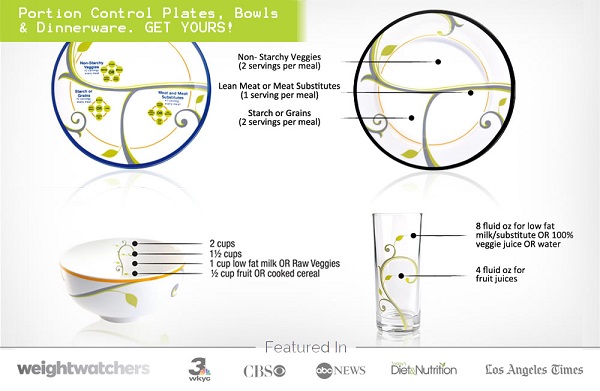Fruits are some of the best source of nutrition out there. Being natural and organic, fruits are nature’s sustenance that had sustained life across thousands of years. While abundant with health-promoting and life-sustaining components, fruits are also generally better as food for their clean consistency.
However, not all fruits are the same, which makes certain varieties better suited than others in a certain specific situation, such as for the purpose of maintaining blood pressure.
True enough, when most doctors would suggest having to reduce salt intake and fatty foods as a means to controlling blood pressure, there is also another aspect to the advice—that is, the need to eat healthy which inevitably places heavy emphasis on a variety of fruits.
Whether you fit the bill of a person who is hypertensive or is simply concerned that you might be one unwittingly, there are fruits you can consume regularly in such a way that you regulate your body’s blood pressure to normal levels when possible.
Fruits that Lower Blood Pressure
As such, here are the 10 best fruits you can eat in order to maintain a healthy blood pressure in your body:
1. Berries
Berries are a rich source of plant-based compounds called flavonoids (Del Rio, D. et al, 2010) that is known to benefit the human body, not just in combatting the potential occurrence of certain diseases, but also for its direct effect on the blood vessels.
In a study conducted by Clark, J. et al, (2015) which tries to observe the positive relationship between flavonoids and blood pressure, it has been established that the former has an attenuating benefit over the latter, suggesting the compound’s hypotensive capability.
2. Bananas
There are plenty of foods that are a thriving source of essential potassium in the body and bananas are among those.
Potassium is a critical component in the normal regulation of blood pressure, partly for its power to maintain the balance, which is otherwise disturbed by an element such as sodium (Staruschenko, A. [2018]).
Both the Food and Nutrition Research Institute and American Heart Association suggest the regular consumption of banana as a way of regulating the body’s blood pressure.
3. Cacao
The cacao may not technically be a fruit, but rather a seed of a fruit, and may not be easily consumed by itself. Nevertheless, to consume cacao need not have to be in its crude form and is something that can be done alternatively by eating dark chocolate (unsweetened)—without dispute the best way to eat chocolates in a healthy fashion in general.
Like berries, cacao is an abundant source of anti-oxidants, like flavonoid (Crozier, S. et al, 2011), that is pivotal in the overall picture of blood pressure management.
4. Pomegranate
Pomegranate is a fruit known to have antihypertensive properties and is something corroborated by a study conducted by Sahebkar, A. et al, (2017). In it, the study demonstrated the pomegranate fruit’s benefit to lowered systolic and diastolic blood pressure, which is premised as originating from its rich content of anti-oxidants.
Subsequently, the aforementioned study advocates the idea of consuming pomegranate juice in maintaining a heart-healthy diet.
5. Watermelon
The watermelon may make for an ideal summer snack for its rich water contents on top of its palatable taste. But eating watermelon is generally beneficial to the human body for its apparent benefit in maintaining healthy blood pressure levels.
The mentioned belief is supported by a study by Figueroa, A. et al, which found out the fruit’s hypotensive capability. A different research also backs up the belief by pointing to the L-citrulline content of watermelon as the source of its hypotensive benefit (Mahboobi, S. et al, 2019).
6. Kiwi
Kiwi is a fruit popularized for its sour, tarty taste that makes it an ostensive source of vitamin C, which, as per study, is said to be significant in the reduction of blood pressure (Juraschek, S. et al, 2012).
In an equally interesting note, it is also found out that eating kiwi on a regular basis has a paramount effect to the attenuation of the blood pressure than eating apple (Svendsen, M. et al, 2015).
7. Orange
Orange is yet another fruit that comes packed full of vitamin C, which is established as hypotensive (Juraschek, S. et al, 2012).
Aside from its abundant concentration of vitamin C, what makes orange easily a part of this list is due to its overabundance that makes access to the fruit rather easy and simple.
8. Avocado
There has been a growing trend about avocado recently which made it a popular food of choice among health enthusiasts due to its perceived health benefits. This notion is not without its merit, much that many interest has been given towards this particular fruit.
As it turns out, avocado is especially helpful in the regulation of blood pressure as a secondary effect to the fruit’s ability to influence the body’s oxidized low-density lipoprotein (Wang, L. et al, 2020).
An interesting study on animal subject also raises further interest on the fruit’s hypotensive capability which saw a decrease in the subject’s blood pressure marker after having been introduced to avocado extract as part of the test (Firmansyah, A. et al, 2016).
9. Tomato
Many mistakenly consider tomato as a vegetable whereas it is technically a fruit. Nonetheless, tomato is a fruit that comes with many benefits, particularly in its role towards managing blood pressure.
In a study by Engelhard, Y. et al, (2005), the natural antioxidants endemic in tomatoes was linked as a critical factor in the fruit’s ability to moderate the body’s blood pressure, especially among hypertensive patients.
10. Guava
The guava fruit may not be a popular fruit in some parts of the world, whether by its rarity or total inexistence. While the fruit may suffer a degree of obscurity among people, the guava is actually a valuable food for its health benefits, particularly its wealth of nutrients that surpass that of oranges.
That speaks of the guava’s thriving source of vitamin C and potassium, both of which integral in the healthy regulation of blood pressure (Singh, R.B. et al, 1993), which exceeds the previously fruit by a substantial margin.







 We're committed to bringing you the best in health and helping you discover the wonderful world of the DASH diet. If you're looking to control your blood pressure, hypertension, or just looking to get into great health, we're here to help.
We're committed to bringing you the best in health and helping you discover the wonderful world of the DASH diet. If you're looking to control your blood pressure, hypertension, or just looking to get into great health, we're here to help. 



